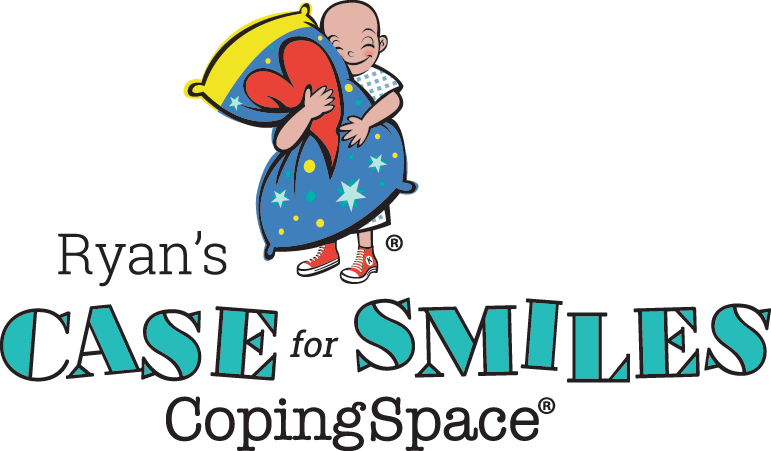BLOG
How to Share Bad News with Your Child
March 27, 2019
Every parent dreads telling their children tough news. Unfortunately, when facing a life ch anging illness or injury, many difficult conversations can come up. These could be about an upsetting diagnosis or even something more minor, such as limitations due to treatments.
anging illness or injury, many difficult conversations can come up. These could be about an upsetting diagnosis or even something more minor, such as limitations due to treatments.
It’s natural to want to avoid giving bad news but being open and honest can help your child cope. Knowing is better than worrying about the unknown, and sharing information shows you trust and value them. Plus, while never fun, it does provide an opportunity for your child to learn how to deal with challenges and build resilience to bounce back.
Tips for Having Difficult Conversations with Children
So where do you start? First, trust your instincts. You know your child’s unique needs and personality best. Then use the tips below to help talk about tough topics with your ill or injured child and their siblings.
Prepare What You Want to Say
Some advanced planning can make difficult conversations much easier. Practice not only what you want to say, but your responses to potential questions as well.
Be sure to use words your child can understand. Stumped? You can find some useful phrases based on your child’s age here. Your child’s doctors, child life specialist, or nurses are also great resources and may be able to provide child-friendly terms for your specific situation.
Choose a Quiet Time and Place
We are all juggling a million things. It can be hard to find a moment to catch your breath. But important conversations like these need your full attention. Find a time and place where your children can be the center of your attention. And don’t forget to turn off or put away your phone!
Ask What They Know
Begin by asking your child what they know. Then listen, listen, listen!
While you may think you’ve hidden the news, children are observant and often notice changes in you or the home. Asking what they know gives you a place to start, and the opportunity to clear up misunderstandings.
Tell the Truth
While you may want to protect your child, being honest is the way to go. In addition to adding to their uncertainty and your stress, keeping secrets teaches children that it is okay to lie if a good reason exists. In turn, they may keep things from you if they think it will upset you.
Lay out the facts at a level they can understand. You do not need to give graphic details but enough to keep them informed.
Help Your Child Name Their Feelings
 Encourage your child to share their thoughts and feelings. Then, be a good listener even if what they say is hard to hear. We can’t stop kids from feeling sad, but we can support them in their sadness.
Encourage your child to share their thoughts and feelings. Then, be a good listener even if what they say is hard to hear. We can’t stop kids from feeling sad, but we can support them in their sadness.
Help your child identify their emotions, such as being scared, angry, jealous, or guilty. And be sure to assure them it’s normal and okay to have strong emotions about the situation.
Also, don’t be surprised if they don’t want to talk when you do. Rather than push, try suggesting other activities to help process their feelings. Older children might keep a journal to write down questions or worries that come up. Younger ones might find it useful to draw.
Share Your Feelings
While your first instinct may be to pretend everything is fine, it’s okay, and even important, to acknowledge your feelings. Role model for your child positive ways to deal with strong emotions. Try not only sharing them, but what you plan to do about it. For example, “I’m feeling upset, so I think I’m going to go for a bike ride.” Or, “I’m feeling a little scared too. Maybe if we talk about it, we’ll both feel better.”
Reassure, But Don’t Promise
Reassure your child that none of this is their fault, and that you will do everything you know to take care of them. Also let them know you are available to answer any questions or talk about this topic again.
However, be careful not to make any promises you can’t keep. Talk to your medical team about what you can expect first so you don’t make promises that aren’t realistic.
Encourage Your Child to Ask Questions
End each talk by asking your child if they have any questions. And don’t be afraid to say, “I don’t know.” You can then encourage your child to ask their doctor and hospital staff, or simply say you will figure it out together.
Seek Help
If you are feeling overwhelmed or your child seems to be having trouble coping (both which are totally normal!), you can always reach out to a professional for help. A psychologist, child life specialist or social worker can be a great resource in helping navigate emotions, develop coping strategies, and form a plan to move forward.
No one wants to have to share disappointing or upsetting news. But with a little preparation, you can help your child cope and grow.
For more tips on helping your child cope and age-appropriate phrases to use, visit the Children section.
